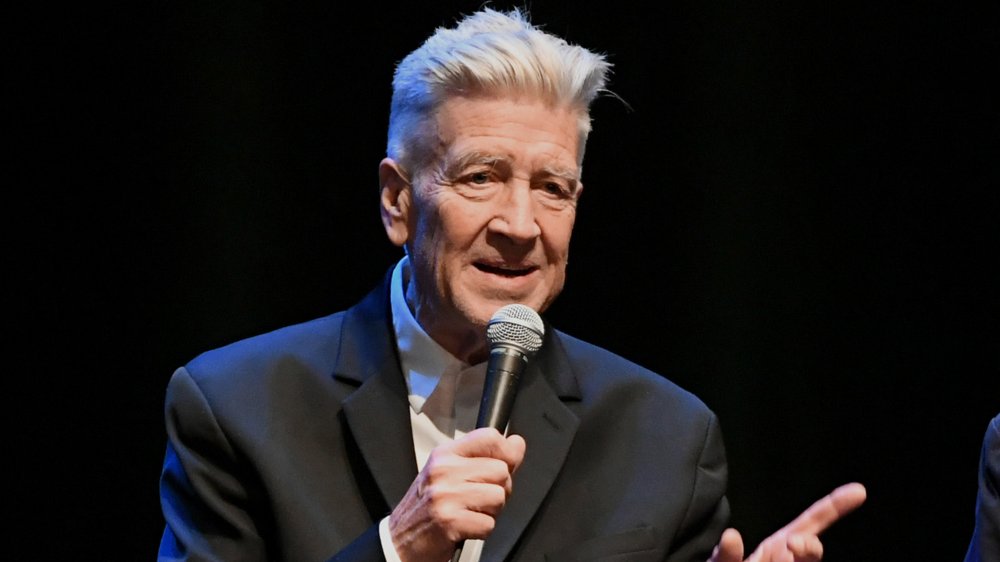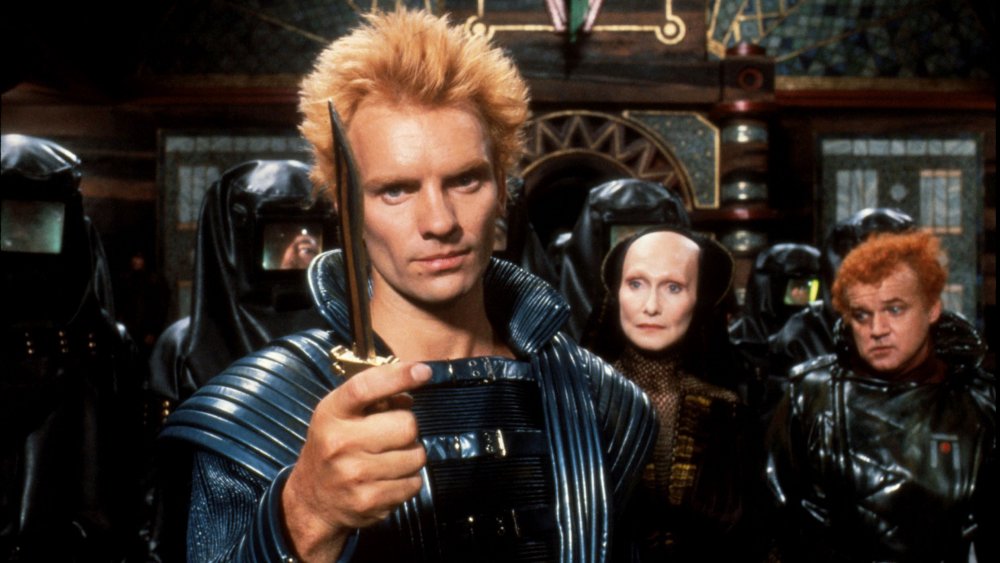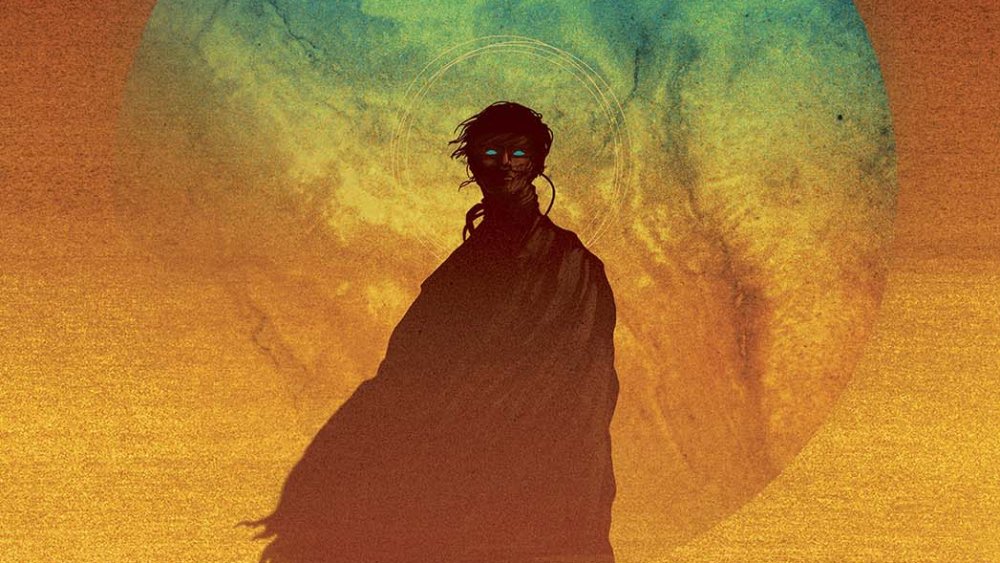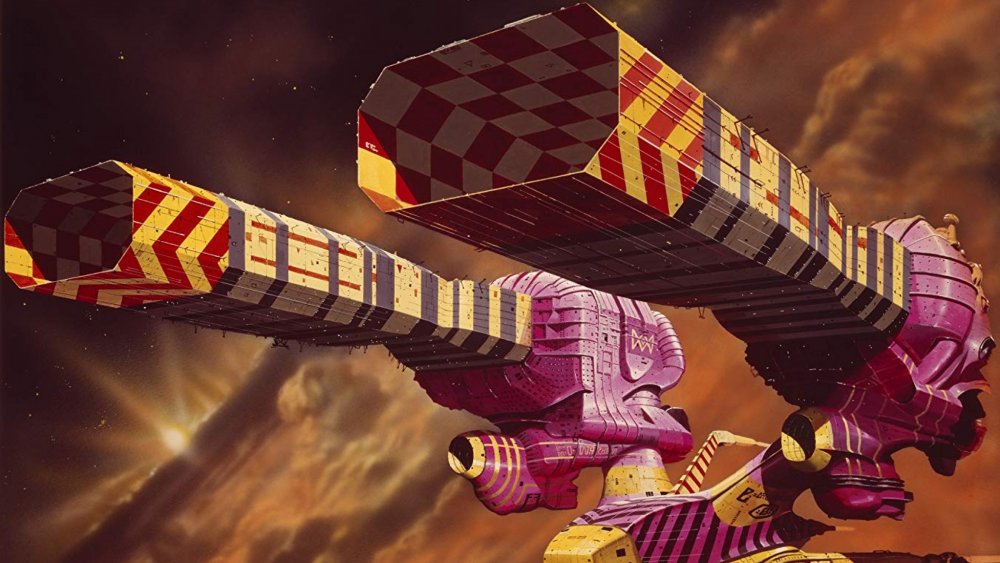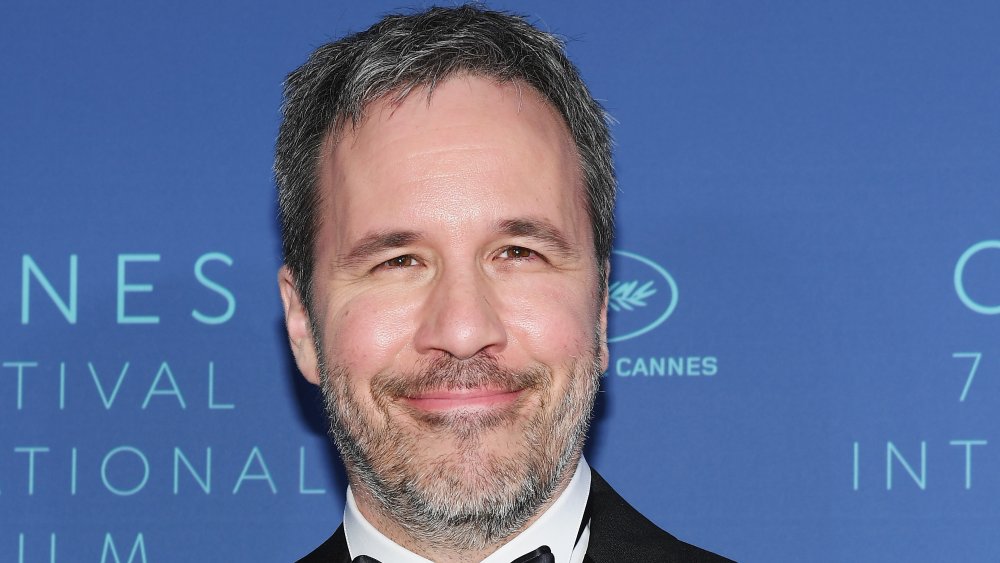What David Lynch Really Thinks Of The Upcoming Dune Reboot
It's a testament to the potency of Frank Herbert's classic sci-fi novel Dune that it remains a hot topic in the zeitgeist more than 50 years after its initial release. Of course, as well-regarded as the book is, we can't lay all this recent buzz at Herbert's feet. A lot of it has come courtesy of director Denis Villeneuve, who dropped a whole bunch of photos from the set of his upcoming film adaptation in a feature article from Vanity Fair. Seeing high-profile stars like Oscar Isaac, Zendaya, Josh Brolin, Timotheé Chalamet, and Jason Momoa inhabiting Herbert's far-flung space opera universe has set the internet abuzz, as anticipation builds to a fever pitch for the Arrival and Blade Runner 2049 filmmaker's stab at adapting a property that has flummoxed multiple efforts to bring it to the big screen.
Now, the man responsible — or, partly responsible, depending on who's doing the talking — for one of the most spectacularly off-the-wall efforts at a Dune film has spoken up about the upcoming reboot. Known for his distinctive visual style, director David Lynch helmed a 1984 cinematic version of Dune that was the culmination of a 13-year production rollercoaster... which bombed titanically with both critics and audiences. In a recent interview with The Hollywood Reporter, Lynch made it clear that he, for one, isn't one of those chomping at the bit to see Villeneuve's efforts come to life — thanks in no small part to his experience with Dune over 35 years ago.
David Lynch to Dune: Drop dead
When asked whether he had seen the photos from Villeneuve's Dune production, Lynch didn't mince words, saying simply, "I have zero interest in Dune." When pressed, however, he opened the floodgates — at least, as much as can be expected from the notoriously enigmatic filmmaker.
"It was a heartache for me," Lynch said of his 1984 version of Dune. "It was a failure and I didn't have final cut. I've told this story a billion times. It's not the film I wanted to make. I like certain parts of it very much — but it was a total failure for me."
Lynch's reaction is understandable. Hired to write and direct Dune after other directors passed or failed, Lynch embarked on an epic production that employed some 1,700 crew members and took three and a half years of his life. At the end of it, he had a rough cut that ran over four hours, and an intended finished cut almost three hours long. Universal Pictures expected a shorter, two-hour film, however, and forced a series of cuts and reshoots that would see the movie truncated at the cost of thematic coherence. Lynch has been notoriously salty (and understandably so) ever since, citing Dune as the only project on which he's not had final cut, and refusing numerous offers to work on a Special Edition for home video release.
Dune isn't an easy property to adapt to film
Why has Dune proven such a thorny thing that even a filmmaker of Lynch's master skill can't crack it? Much of it has to do with scope. Herbert's novel is hefty in length, and the sheer amount of world-building he packs into its pages is staggering. What's more, while works like J.R.R. Tolkien's The Lord of the Rings books had basis in traditional mythological tropes, Herbert's story was full of out-there concepts like an addictive spice that makes folding space for interstellar travel possible. In fact, studio concern about an audience's ability to grasp some of Herbert's weird creations was so intense that "cheat sheets" explaining the universe's vocabulary were handed out during the film's initial theatrical run.
Keep in mind, too, that we live in a time when audiences no longer bat an eye at binging up to ten hours of television at a time, let alone sitting in a theater for a three-hour sci-fi epic. In the late '70s and early '80s, George Lucas' Star Wars trilogy opened the door for unconventional space sagas, but those films were also tightly-wound adventure stories based on the serials their creator watched as a child. Herbert's Dune, by contrast, was sprawling and meditative — meaning any effort to compress it down to a then-standard two hours was bound to face a monumental, and quite possibly unworkable, task.
Dune went from Jacobs to Jodorowsky to De Laurentiis to Lynch
Efforts to translate Dune into movie form began with producer Arthur P. Jacobs, who optioned the rights in 1971. The project died with Jacobs in 1973, but was picked up by a French consortium and handed over to visionary director Alejandro Jodorowsky in 1974. That production, as detailed in an acclaimed 2013 documentary, was a trip — involving visionary design from artist H.R. Giger — who would go on to famously work on Ridley Scott's Alien – and a cast that included the likes of Orson Welles, Mick Jagger, and even Salvador Dalí. It was eventually scrapped in pre-production after its scope grew beyond control and financial reality.
From there, Dune landed in the hands of producer Dino De Laurentiis, who hired Ridley Scott to helm it. Scott's plan was to split the project into two films, but it was abandoned when he departed to take on Blade Runner. De Laurentiis then landed on Lynch, fresh from the success of The Elephant Man; the director would turn down several other projects, including Return of the Jedi, to come aboard Dune. Unfortunately, the production proved difficult, and the post-production even more so, leading to a cinematic debacle savaged by reviewers and generally ignored by moviegoers.
Denis Villeneuve must not fear, for fear is the mind-killer
Since then, Dune has mostly slept — popping its head out of the sand for a 2000 miniseries from Syfy (then known as Sci-Fi Channel) and a couple of video games, one of which set the stage for the popularity of real-time strategy PC games like Command & Conquer and Warcraft when it arrived in 1992. Dune current journey back to the big screen began when Legendary Pictures acquired the rights in November 2016, eventually handing the project over to Villeneuve – who had garnered Oscar notice for his alien encounter film Arrival, and who called the idea of adapting Dune for film "a lifelong dream." Well aware of what had transpired when Lynch's film attempted to compress Herbert's work, Villeneuve followed Scott's path and secured a two-picture deal with Warner Bros., which will distribute the films for Legendary.
Filming for Villeneuve's Dune wrapped in July 2019, and he has appeared to make all the right moves — casting Oscar nominee Timothée Chalamet in the lead role of Paul Atreides and surrounding him with heavy hitters like Rebecca Ferguson, Dave Bautista, Oscar Isaac, Josh Brolin, and Javier Bardem. Villeneuve has made overtures about faithfulness to the source material, while also showing a willingness to tinker — as evidenced by his expansion of the female roles, according to actress Rebecca Ferguson (via Vanity Fair).
Whether Villeneuve can finally stick the landing on a Dune film remains to be seen, but the one thing for certain is that David Lynch won't be among those of us who find out when the movie arrives in theaters on December 18, 2020.
